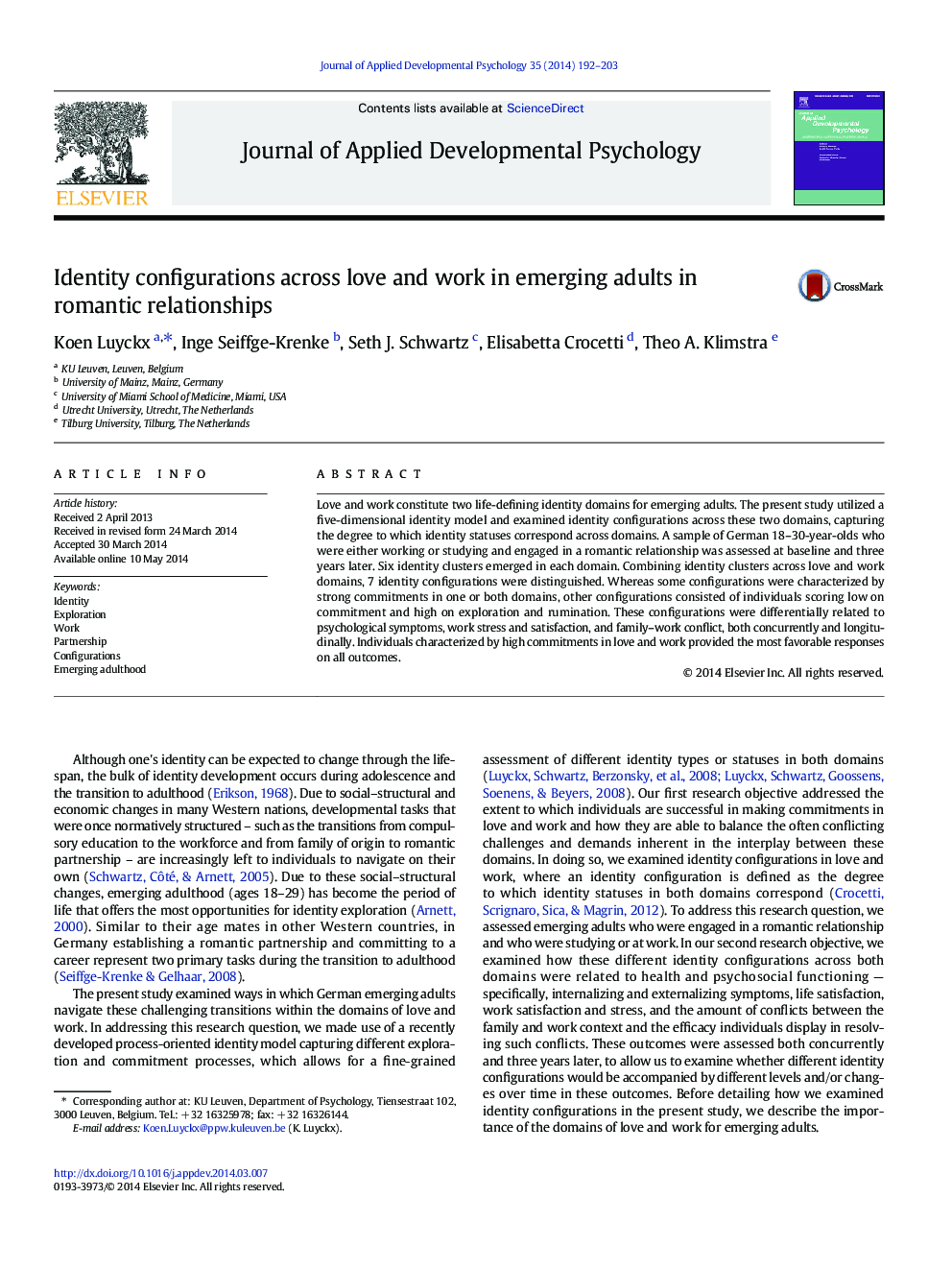| Article ID | Journal | Published Year | Pages | File Type |
|---|---|---|---|---|
| 359674 | Journal of Applied Developmental Psychology | 2014 | 12 Pages |
•Identity configurations across love and work were examined in emerging adults.•A five-dimensional identity model was used in this longitudinal study.•Seven configurations emerged based on commitment and exploration scores.•Clear links emerged between these configurations and various psychosocial outcomes.•Emerging adulthood appears to be a challenging period for many individuals.
Love and work constitute two life-defining identity domains for emerging adults. The present study utilized a five-dimensional identity model and examined identity configurations across these two domains, capturing the degree to which identity statuses correspond across domains. A sample of German 18–30-year-olds who were either working or studying and engaged in a romantic relationship was assessed at baseline and three years later. Six identity clusters emerged in each domain. Combining identity clusters across love and work domains, 7 identity configurations were distinguished. Whereas some configurations were characterized by strong commitments in one or both domains, other configurations consisted of individuals scoring low on commitment and high on exploration and rumination. These configurations were differentially related to psychological symptoms, work stress and satisfaction, and family–work conflict, both concurrently and longitudinally. Individuals characterized by high commitments in love and work provided the most favorable responses on all outcomes.
